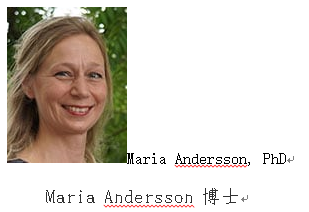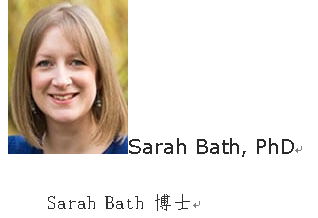Europe at Risk for Iodine Deficiency Resurgence
医景医学新闻:欧洲面临地方性甲状腺肿大复苏的风险
Sheena Meredith, MBBS, MPhil
June 28, 2024
Dietary trends away from dairy products, plus the increasing popularity of plant-based alternative milks, have contributed to an increased risk for iodine deficiency across Europe, according to a new report by the World Health Organization (WHO) Regional Office for Europe and the Iodine Global Network (IGN). The report notes that most salt consumption now comes from meals prepared out of the home and processed foods, which may use noniodized salt, and urgently calls for iodine fortification of all salt and plant-based alternatives to dairy products.
"Even mild [iodine] deficiency, which exists throughout Europe, has a major impact on population health and the economy," said Werner Schultink, PhD, executive director of the IGN, in a press release for the report launch.
The report notes that historically, much of the European population was affected by endemic iodine deficiency. A century ago, severe deficiency disorders such as endemic goiter, clinical hypothyroidism, and severe congenital iodine deficiency disorder (previously referred to as cretinism) were widespread. Preventive measures, including salt iodization, mean these are now controlled. However, mild iodine deficiency remains "a widespread problem in the European region," the report said.
根据世界卫生组织(WHO)欧洲区域办事处和碘全球网络(IGN)的一份新报告,远离乳制品的饮食趋势,加上植物替代牛奶的日益流行,已经导致了欧洲各地地方性甲状腺肿大的风险增加。
报告指出,现在大多数食盐消费来自家庭准备的膳食和加工食品,这些食品可能使用非碘盐,并紧急呼吁所有食盐和植物性替代品的碘强化奶制品。
IGN 的执行董事沃纳·舒尔廷克博士在发布报告的新闻稿中说: “即使是欧洲各地普遍存在的轻度碘缺乏症,也会对人口健康和经济产生重大影响。”
报告指出,从历史上看,大部分欧洲人口都受到地方性地方性甲状腺肿大的影响。一个世纪以前,地方性甲状腺肿、临床甲状腺功能减退症和严重的先天性地方性甲状腺肿大障碍(以前称为克汀病)等严重缺陷性疾病广泛存在。包括食盐加碘在内的预防措施意味着这些问题现在得到了控制。然而,报告称,轻微的地方性甲状腺肿大仍然是“欧洲地区普遍存在的问题”。
Health Risks Across the Lifespan
终生健康风险
The potential consequences of iodine deficiency include effects on brain development in early life and increased risk for goiter, thyroid nodules, and hyperthyroidism in adults; the risks of untreated hyperthyroidism include cardiac arrhythmia, heart failure, osteoporosis, adverse pregnancy outcomes, and cognitive impairment in older people.
Yet recent changes in dietary habits have led to a heightening risk for minor iodine deficiency since the last WHO report was published 15 years ago.
"The shift towards plant-based dairy alternatives, particularly among women, who already bear a higher risk of iodine deficiency and thyroid diseases than men, is concerning for their iodine nutrition, especially in countries relying on milk as a source of iodine, as most dairy alternatives do not contain it," said Dr Hans Henri Kluge, WHO's regional director for Europe, in the press release. He warned that the problem could be reemerging in some countries in the region.
地方性甲状腺肿大的潜在后果包括对早期大脑发育的影响,增加成年人甲状腺肿大、甲状腺结节和甲状腺功能亢进的风险,未经治疗的甲状腺功能亢进的风险包括心律不整、心力衰竭、骨质疏松、不良妊娠结局和老年人的认知障碍。然而,自15年前世卫组织发布上一份报告以来,近期饮食习惯的变化已导致轻微地方性甲状腺肿大的风险加大。
世卫组织欧洲地区主任汉斯 · 亨利 · 克鲁格博士在新闻发布会上说: “转向植物性乳制品替代品的趋势,特别是在女性中,她们患地方性甲状腺肿大和甲状腺疾病的风险已经高于男性,这关系到她们的碘营养,特别是在依赖牛奶作为碘来源的国家,因为大多数乳制品替代品不含碘。”。他警告说,这个问题可能会在该地区的一些国家重新出现。
Pre-Prepared Foods Now Large Source of Salt Intake
预制食品现在是大量的盐摄入来源
Salt iodization remains the main strategy across Europe to ensure adequate iodine intake, but this too has been affected by dietary and lifestyle changes. Foods produced or cooked outside the home, such as bread, processed meats, or ready-to-eat meals, are now "the main sources of salt in a western diet," the WHO said, comprising 70%-80% of the total. These foods are often prepared using non-iodized salt. For example, surveys have shown that only 34% of salt in processed foods in Switzerland was iodized, and the proportion was as low as 9% in Germany.
Many countries in Europe already acknowledge the benefits of fortifying certain food staples with iodized salt, such as bread, said Rodrigo Moreno-Reyes, MD, PhD, lecturer on endocrine physiology at the Université Libre de Bruxelles and IGN's regional coordinator for Western and Central Europe, speaking to Medscape Medical News.
"In countries where the use of iodized food-grade salt in households and processed foods is mandatory, particularly in domestic products such as bread, bakery, and processed meats, population iodine status is generally adequate," he said.
Similarly, in countries with more than 80% use of iodized salt in the bakery industry, such as Armenia, Belarus, Belgium, Georgia, Moldova, and the Netherlands, population iodine intake and status are optimal, he explained.
食盐加碘仍然是整个欧洲确保充足碘摄入量的主要战略,但这也受到饮食和生活方式变化的影响。世界卫生组织说,在家庭以外生产或烹饪的食物,如面包、加工肉类或即食餐,现在是“西方饮食中盐的主要来源”,占总量的70% -80% 。这些食品通常使用非碘盐制备。例如,调查显示,在瑞士,加工食品中只有34% 的盐含碘,而在德国,这一比例只有9% 。
医学博士、内分泌生理学讲师、 IGN 西欧和中欧地区协调员罗德里戈 · 莫雷诺-雷耶斯(Rodrigo Moreno-Reyes)在接受《医景医学新闻》(Medscape Medical News)采访时表示,许多欧洲国家已经认识到用面包等加碘盐强化某些主要食品的益处。他说: “在那些家庭和加工食品必须使用加碘食品级盐的国家,特别是在面包、烘焙和加工肉制品等国内产品中,人口的碘状况一般是适当的。”。同样,在面包业中碘盐使用率超过80% 的国家,如亚美尼亚、白俄罗斯、比利时、格鲁吉亚、摩尔多瓦和荷兰,人口碘摄入量和状况是最佳的,他解释说。
Salt: The Optimal Fortification Vehicle
盐: 最佳的防御工具
Salt iodization is a highly cost-effective intervention, he added. The WHO/IGN report notes that salt is "an optimal vehicle for iodine fortification."
他补充说,食盐加碘是一种成本效益很高的干预措施。世界卫生组织/IGN 的报告指出,盐是“碘强化的最佳工具。”

Report co-author Maria Andersson, PhD, a dietitian and senior scientist at University Children's Hospital Zürich in Switzerland, explained to Medscape Medical News that compared with wheat flour fortification, salt is a vehicle consumed by everyone in the population in relatively small amounts. "It reaches everyone in the general population," she said, with no risk for excessive intake because the level of iodine in iodized salt is adapted to the current salt intake.
Furthermore, she added, it is relatively easy and cheap to add iodine to salt, and the iodine content is stable if salt is properly packed, which is the case in Europe.
However, the report highlights that mandatory fortification with iodine in many countries applies only or mainly to table salt, and not to that used in food production. At the same time, people are consuming more processed and less home-cooked food, to which they might add table salt, and they are also consuming less iodine-rich food, such as dairy milk and fish.
Dietary trends such as these have more bearing on the issue than does recent public health advice to reduce salt consumption, Andersson explained. However, "as less salt is consumed, it is even more important that it is iodized."
Although the escalating consumption of processed foods has also been blamed for the obesity epidemic now affecting much of Europe, iodine deficiency is not directly associated with obesity. "If most salt consumed is iodized, the iodine intake will be sufficient."
报告的共同作者玛丽亚 · 安德森博士是瑞士苏黎世大学儿童医院的营养学家和资深科学家,他向 Medscape 医学新闻解释说,与强化面粉相比,盐是人们消耗相对较少量的一种工具。她说: “这种情况普遍存在于每个人身上。”由于碘盐中的碘含量适应当前的食盐摄入量,因此不存在过量摄入的风险。
此外,她补充说,在食盐中添加碘相对容易和便宜,而且如果食盐包装得当,碘的含量是稳定的,欧洲就是这种情况。然而,该报告强调,在许多国家,强制性碘强化只适用于或主要适用于食盐,而不适用于食品生产中使用的碘。与此同时,人们食用的加工食品越来越多,家庭烹饪的食品越来越少,他们可能会在食品中加入食盐,而且他们也在食用含碘量较低的食品,如牛奶和鱼。(壹佰提示:安德森博士补充说与本地饮食新常态情形大致类似!)
安德森解释说,这样的饮食趋势比最近的公共健康建议对减少盐消费有更大的影响。然而,“随着食盐消耗量的减少,加碘更为重要。“尽管加工食品消费的不断增加也被认为是目前影响欧洲大部分地区的肥胖症流行的原因,但地方性甲状腺肿大与肥胖症没有直接联系。“如果食用的大部分食盐都加了碘,碘的摄入量就足够了。”(壹佰提示:修订中的《食盐加碘消除碘缺乏危害管理条例》涉及有关“如果食用的大部分食盐都加了碘”的针对性细化措施确可应对且有领先,也给欧州方面提供了可借鉴之处。但实施仍须落实配套普及科学补碘的健康教育,到位未加碘食盐的食品标签标识适宜人群等警示语,帮助消费者自觉科学补碘、按需在公布网点选购未加碘食盐!《食盐加碘消除碘缺乏危害管理条例》(司法部20200102征求意见稿)相关内容:
第六条 各地应当向公众宣传碘缺乏危害和甲状腺疾病相关知识,引导群众科学补碘。
第十三条 在碘缺乏地区销售的食盐,应当为符合食用盐碘含量标准的加碘食盐。
在碘缺乏地区,餐饮服务提供者以及集中用餐单位的食堂,应当使用符合食用盐碘含量标准的加碘食盐。
第十四条 因疾病等情况不宜食用加碘食盐的,在医师指导下选择未加碘食盐。
各地盐业主管部门和卫生主管部门应当向社会公布本辖区内未加碘食盐销售网点的相关信息。
第十五条 加工食品应当使用加碘食盐;为满足特定人群需求使用未加碘食盐的需在标签上注明。
第二十一条 市场销售的食盐应当为小包装食盐,并有明显的加碘食盐标识、碘含量水平标注或者未加碘食盐标识,注明适宜人群或不宜人群。)
Double Burden: Overfed but Undernourished
双重负担: 营养过剩
The escalating consumption of processed foods has also been blamed for the obesity epidemic now affecting much of Europe.
加工食品消费的不断增加也被认为是目前影响欧洲大部分地区的肥胖流行病的罪魁祸首。

The coexistence of iodine deficiency and overweight/obesity is known as the "double burden of malnutrition," said Sarah Bath, PhD, senior lecturer in public health nutrition at the UK's University of Surrey and a registered dietitian with a main research interest in iodine. This can apply within individuals and at the population level and involves overnutrition and undernutrition coinciding with each other.
"Diets may be high in energy but low in other nutrients, particularly micronutrients including iodine," she said.
The WHO/IGN report stresses that the health risks of minor iodine deficiency are particularly high for women during pregnancy because they have higher iodine needs, and iodine intake is especially important for fetal brain development prior to and during pregnancy. Yet women are more likely to switch away from dairy consumption and favor plant-based milks as an alternative.
The WHO Regional Office for Europe and the IGN issued an urgent joint call for iodine fortification of all salt and plant-based dairy alternatives across the WHO European region. Although policies to reduce sodium intake are important, the report's authors say people should be advised to use less, but always iodized, salt to prevent iodine deficiency.
地方性甲状腺肿大和超重/肥胖并存被称为“营养不良的双重负担”,英国萨里大学公共卫生营养学高级讲师、主要研究碘的注册营养师萨拉•巴斯博士说。这可以适用于个人和群体层面,并涉及营养过剩和营养不足相互重叠。她说: “饮食中的能量含量可能很高,但其他营养素含量却很低,尤其是碘等微量营养素。”。
世界卫生组织/国际孕妇研究所的报告强调,少量地方性甲状腺肿大对妇女在怀孕期间的健康风险特别高,因为她们对碘的需求较高,而摄入碘对于怀孕前和怀孕期间胎儿的大脑发育特别重要。然而,女性更有可能放弃乳制品的消费,转而青睐植物性牛奶作为替代品。
世卫组织欧洲区域办事处和全球营养网络发出紧急联合呼吁,要求在世卫组织欧洲区域强化所有盐和植物性乳制品替代品的碘营养。尽管减少钠摄入量的政策很重要,但报告的作者表示,应该建议人们少用,但一直都是加碘的盐来预防地方性甲状腺肿大。
Credits:
Lead image: E+/Getty Images
Image 1: Dr Maria Andersson
Image 2: Dr Sarah Bath
Medscape Medical News © 2024 WebMD, LLC
Send comments and news tips to news@medscape.net.
Cite this: Europe at Risk for Iodine Deficiency Resurgence - Medscape - June 28, 2024.
引用此文: 欧洲面临地方性甲状腺肿大复苏的风险-梅德斯普-2024年6月28日。
——本文参考资料链接引自盐业部落《WHO/IGN报告:风险增加!食盐补碘成关键》,供参考的英翻中内容政法栏目管理员使用360翻译。https://www.medscape.com/viewarticle/europe-risk-iodine-deficiency-resurgence-2024a1000c3k?src=rss&form=fpf